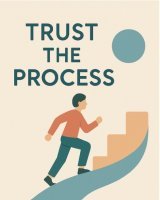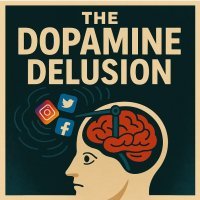Andrew Newberg
What Neurology Can Tell Us About How We Think And Why It Matters

Dr Andrew Newberg
is regarded as one of leading pioneers in the field of neuroscientific
study of religious and spiritual experiences, increasingly referred to
as – neurotheology.
His research work focuses on the nature of religious and spiritual practices and experiences and specifically how brain function is associated with various mental states, especially the relationship between brain function and mystical or religious experiences.
Andrew Newberg - "Demystifying the Human Brain: SPECT Scans, Neurotheology, and the Aging Brain."
Why Andrew Newberg's work matters
Andrew Newberg's work provides further compelling
evidence for the neurological underpinning of the core theme of this
site, namely how to think and how to not think.
In "Thinking Styles Assessment" we reviewed the work of Dr Katherine Benziger and her evidenced based neurological insights into how our brain structures predicate our thinking style.
Benziger's model recognises that the brain has four specialised areas
responsible for different brain functions. Significantly we each
have natural strengths in only one of these specific areas. Benziger outline the importance of using
your natural preferred thinking style, and what happens when you don't.
In "Why we think the way we do" I attempted to introduce you to "why we think the way we do" from the perspective of the physiology and neurology - the "hardware" - of our minds.
I outlined why I feel that a basic understanding of the neurology of what is going on inside our heads when we engage in meditative and other spiritual practices is important:
The relevance of this understanding of the neurology of left-brain/ right-brain balance is that it is the crux of the whole "balanced" or integrated approach to life.
When we engage with these meditation practises, all that we are doing is re-shaping or re-programming the physical neurological connections between the left and right lobes of our brains via the corpus-callosum to achieve the lived experience of a physiologically better balanced brain!
In my own view, based on the evidence, at the current stage of evolution of the "average" or "normal" human brain - the "left brain" and the "right brain" do not communicate easily or much at all. The same is also true for the "the emotional centre" and "the reptile brain" or the survival instinct).
So the evidence suggests that this fundamental lack of
brain balance, is the underlying evolutionary and neurological reason
why we experience life the way we do and why we all suffer so much, it's
also the root cause of our personal internal conflict and inner
resistance or immunity to change.
At a macro level, it is why as humans we inflict so much appalling suffering on each other.
Attempting to address this imbalance lies at the root of most meditative practises - although it is rarely presented in these terms.
Andrew Newberg's work explains why we find meditation hard and why it takes so long to benefit from it
A further reason why understanding Andrew Newberg's work matters is that it explains:
(1) Why we find meditation practises so hard to do with any consistence or very much persistence.
(2) Why it takes us so long to derive significant and lasting personal change and benefit from these practises as we are quite literally re-wiring or re-routing the neurological pathways in our brains.
And this is why I feel that the use of some form of binaural meditation tool is so very helpful as it makes this "rewiring" process so much easier (just put on the head phones!) and quicker.
I have discussed this in more detail and shared my own specific experiences of this in my "Meditation Programme" product review.
Ted Talk - "Finding Our Enlightened State"
* SEE: "How to find your own path to enlightenment" @ 12.01
Further resources from Dr Andrew Newberg [video & transcript]:
How Enlightenment Changes the Brain
Andrew Newberg - Resources
Return to:Inspirational people
LATEST ARTICLES
Staying Committed When You Can't See Progress - The Psychology of Grit
 Uncertainty Is Not The Absence Of Progress, Only The Absence Of Reassurance. One of the most destabilising experiences in modern life is not failure, but uncertainty and staying committed when you can…
Uncertainty Is Not The Absence Of Progress, Only The Absence Of Reassurance. One of the most destabilising experiences in modern life is not failure, but uncertainty and staying committed when you can…The Battle For Your Mind - How To Win Inner Freedom In A Digital Age Of Distraction
 From External Events to Inner Events. We often think of “events” as things that happen out there: the traffic jam, the rude comment, the delayed email reply. But what truly shapes our experience is wh…
From External Events to Inner Events. We often think of “events” as things that happen out there: the traffic jam, the rude comment, the delayed email reply. But what truly shapes our experience is wh…How to See Your Thoughts Without Becoming the Story
 A Practical Guide to Thought-Awareness. You can spend your life inside the stories of your mind without ever learning how to see your thoughts clearly and objectively. Most of the stuff we tell oursel…
A Practical Guide to Thought-Awareness. You can spend your life inside the stories of your mind without ever learning how to see your thoughts clearly and objectively. Most of the stuff we tell oursel…The Collison Decision Matrix - A Simple Framework for Better Choices
 The Collison Decision Matrix Is A Practical Everyday Thinking Tool. Most of us spend a surprising amount of time worrying about decisions. From small ones such as what to wear, what to eat, what to te…
The Collison Decision Matrix Is A Practical Everyday Thinking Tool. Most of us spend a surprising amount of time worrying about decisions. From small ones such as what to wear, what to eat, what to te…The Power Of Asking The Right Question
 The Power Of Asking The Right Question Lies In The Quest For Insight. To experience the power of asking the right question you must develop the practice of asking questions. The best way to improve th…
The Power Of Asking The Right Question Lies In The Quest For Insight. To experience the power of asking the right question you must develop the practice of asking questions. The best way to improve th…Site Pathways
 Here is a site pathway to help new readers of Zen-Tools navigate the material on this site. Each pathway is based around one of the many key themes covered on this site and contain a 150 word introduc…
Here is a site pathway to help new readers of Zen-Tools navigate the material on this site. Each pathway is based around one of the many key themes covered on this site and contain a 150 word introduc…How To Live With Contradiction - Beyond Thought Let Stillness Speak
 A major impact on so many peoples' lives is the situational contradiction of unfilled realistic expectations. So where does all this leave us? Well here we are, with mental equipment that is more lim…
A major impact on so many peoples' lives is the situational contradiction of unfilled realistic expectations. So where does all this leave us? Well here we are, with mental equipment that is more lim…How To Trust The Process Of Mindfulness - Right Now
 In mindfulness, the process isn’t some distant goal — it's what is happening right now. When we talk about how to trust the process of mindfulness the credibility of the process is heavily dependent…
In mindfulness, the process isn’t some distant goal — it's what is happening right now. When we talk about how to trust the process of mindfulness the credibility of the process is heavily dependent…Inner Mastery For Outer Impact - Mental Clarity For Effective Action
 Insights only matter if they translate into consistent action. In a world crowded with quick fixes and motivational soundbites, the theme “Inner Mastery for Outer Impact” calls us to something more e…
Insights only matter if they translate into consistent action. In a world crowded with quick fixes and motivational soundbites, the theme “Inner Mastery for Outer Impact” calls us to something more e…The Wise Advocate - Helping You Achieve The Very Best Outcome
 The focus of your attention in critical moments of choice either builds or restricts your capacity for achieving the best outcome. When we talk of 'The Wise Advocate' its easy to think of the consigl…
The focus of your attention in critical moments of choice either builds or restricts your capacity for achieving the best outcome. When we talk of 'The Wise Advocate' its easy to think of the consigl…Trust The Process - Beyond The Cliche
 The phrase "trust the process" has become a cliche, the woo-woo mantra of the "self help" industry. Those three little words feel like they ought to mean something useful but hidden behind them are a…
The phrase "trust the process" has become a cliche, the woo-woo mantra of the "self help" industry. Those three little words feel like they ought to mean something useful but hidden behind them are a…The Dopamine Delusion - Why Anticipation Beats Achievement
 The thrill we feel is not in the having, but in the wanting. The more we have, the more we want. The more things we acquire and the easier things get for us, the more discontent we feel. The more spo…
The thrill we feel is not in the having, but in the wanting. The more we have, the more we want. The more things we acquire and the easier things get for us, the more discontent we feel. The more spo…